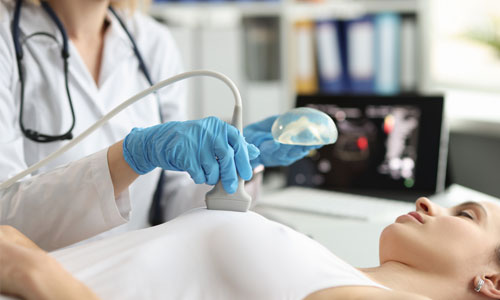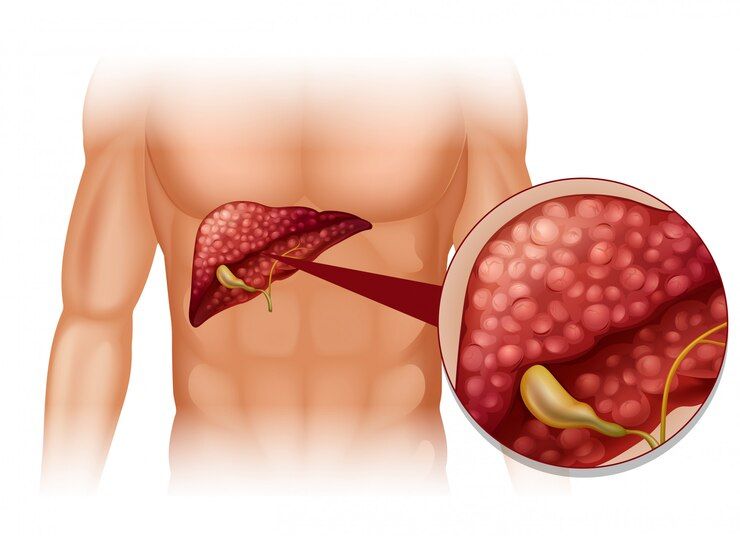Tics are sudden, repetitive movements or sounds that may affect an individual’s daily life. It may be challenging to control these movements but can sometimes be managed with appropriate strategies or treatments. Understanding the options for treating tics is crucial for improving quality of life. This guide explores every tics treatment advised by neuro experts at various leading hospitals such as Nanavati Max Super Speciality Hospital and how they can help manage this condition.
Understanding Tics
Tics are involuntary, repetitive movements or vocalisations. They can be classified into motor tics, which involve movements, and vocal tics, which involve sounds or words. Tics often appear in childhood and can range from mild to severe. The exact cause of tics is not fully understood, but genetic and environmental factors may play a role.
Different Tics Treatments Available
There are several tics treatment options available depending on the needs and severity levels of the symptoms. Here are some common treatments:
- Behavioural Therapies
Most neurologists advise Behavioural therapies as the first line of treatment for managing tics. These therapies help individuals learn to manage their tics through various techniques. Some evidence-based behavioural therapies include:
- Comprehensive Behavioral Intervention for Tics (CBIT): This therapy aims to reduce tic frequency and improve control over tics. It includes components such as awareness training, habit reversal, and competing response training.
- Awareness Training: This component helps individuals recognise the urge that precedes a tic, allowing them to implement alternative responses.
Habit Reversal: This technique involves learning and practising competing behaviours to replace tics, thus helping to reduce their frequency. It includes awareness training as a foundational element.
Competing Response Training: This method teaches individuals to perform an incompatible behaviour when they feel the urge to tic, helping to manage the tic.
Overall, these approaches aim to educate individuals about their tics and provide strategies for managing and reducing their impact.
- Medication Options
For some people, additional support of medicines for managing tics might be helpful. As suggested by medical professionals, these options could include:
- Adjusting Brain Activity: Treatments that help balance brain chemicals might be considered to reduce the severity of tics. Consulting with specialists can provide guidance on whether this approach is suitable.
- Managing Side Effects: It’s important to monitor any side effects from treatments. Neurologists can help manage these effects and adjust the treatment plan to ensure comfort and effectiveness.
- Targeted Muscle Treatments: For tics affecting specific muscles, targeted treatments might offer temporary relief. This approach is usually managed by specialists and may require periodic sessions.
These options are meant to provide additional support and should be discussed with your healthcare provider to determine the best approach for your needs.
- Occupational and Speech Therapy
Another therapy suggested by Psychologists is Occupational and Speech therapy c, which can be beneficial for individuals especially when tics affect daily functioning or communication. Therapy services to address these needs include:
Occupational Therapy: This therapy helps individuals develop skills to manage their daily activities despite their tics. As suggested by healthcare professionals, this therapy focuses on improving fine motor skills, coordination, and coping strategies.
- Skill Development: Enhances daily living skills to improve overall function.
- Adaptive Techniques: Teaches strategies to manage tics in various daily activities.
Speech Therapy: For individuals with vocal tics, speech therapy can be useful. As per therapists, it helps improve communication skills and manage any speech-related difficulties caused by tics.
- Voice Modulation: Techniques to help manage and control vocal tics during communication.
- Articulation Therapy: Focuses on improving clarity and effectiveness in speech despite the presence of tics.
- Cognitive-Behavioural Therapy (CBT)
Cognitive-behavioural therapy is another effective treatment for managing tics. As per therapists, this therapy focuses on addressing the thoughts and behaviours that may contribute to the severity of tics. CBT can help individuals develop coping strategies and reduce the impact of tics on their daily lives.
- Cognitive Restructuring: Aims to change negative thought patterns that may exacerbate tic symptoms.
- Behavioural Interventions: Develops strategies to modify behaviours that contribute to tic severity.
- Supportive Therapies and Lifestyle Changes
Supportive therapies and lifestyle changes can also play a significant role during treatment of tics. Specialists advise below techniques:
Stress Management: Stress can exacerbate tic symptoms. Techniques such as relaxation exercises, mindfulness, and stress management strategies can help reduce the impact of stress on tics.
- Relaxation Techniques: Practices such as deep breathing and progressive muscle relaxation.
- Mindfulness Practices: Encourages awareness and acceptance of the present moment to reduce stress.
Regular Exercise: Regular physical activity can help improve overall well-being and reduce the frequency and intensity of tics.
- Structured Exercise Regimens: Incorporating aerobic and strength-building exercises.
- Physical Activity Goals: Setting achievable goals to ensure consistent participation.
Healthy Diet: A balanced diet can contribute to overall health and well-being. Ensuring proper nutrition may help in managing tic symptoms and supporting overall brain health.
- Nutrient-Rich Foods: Emphasising fruits, vegetables, and whole grains.
- Hydration: Ensuring adequate water intake to support overall health.
- Support Groups and Educational Resources
Engaging in support groups and utilising educational resources can provide additional assistance in managing tics. As per the psychologists, these resources offer emotional support and valuable information:
- Support Groups: Connecting with others who have similar experiences can provide emotional support and practical advice.
- Educational Materials: Accessing information about tics and available treatments can help families make informed decisions.
- Consulting with Specialists
Consulting with specialists is a key part of developing an effective treatment plan. Specialists in neurology, psychiatry, and behavioural therapy collaborate to provide a comprehensive approach to managing tics. Their expertise ensures that each treatment plan is tailored to the individual’s needs.
Conclusion
Effective tic treatment involves a combination of behavioural therapies, medication, occupational and speech therapy, supportive lifestyle changes, and educational resources. Hospitals such as Nanavati Max Super Speciality Hospital, Mumbai,offer a range of treatment options to help individuals with tics lead fulfilling lives. By consulting with specialists and exploring the available therapies, patients can find effective strategies to manage their symptoms and improve their quality of life.
If you or a loved one is struggling with tics, reach out for expert care and support. With the right treatment plan, it’s possible to manage tics effectively and enhance overall well-being.



